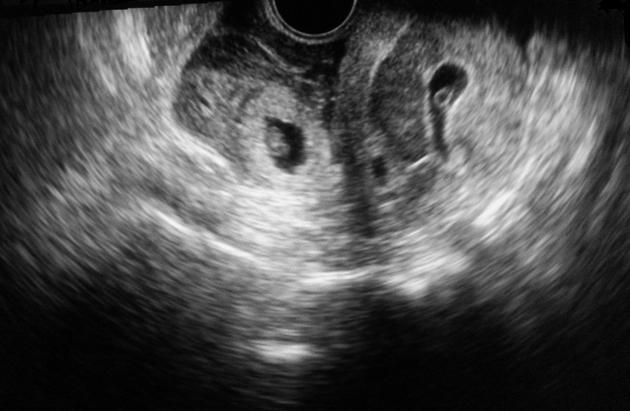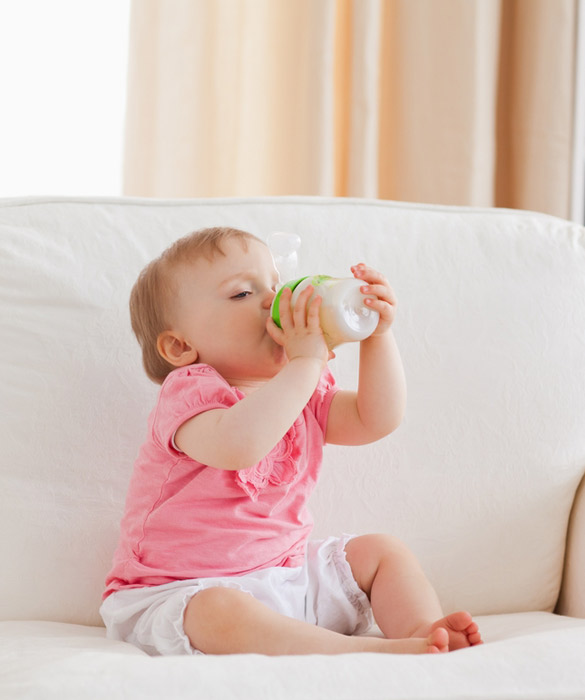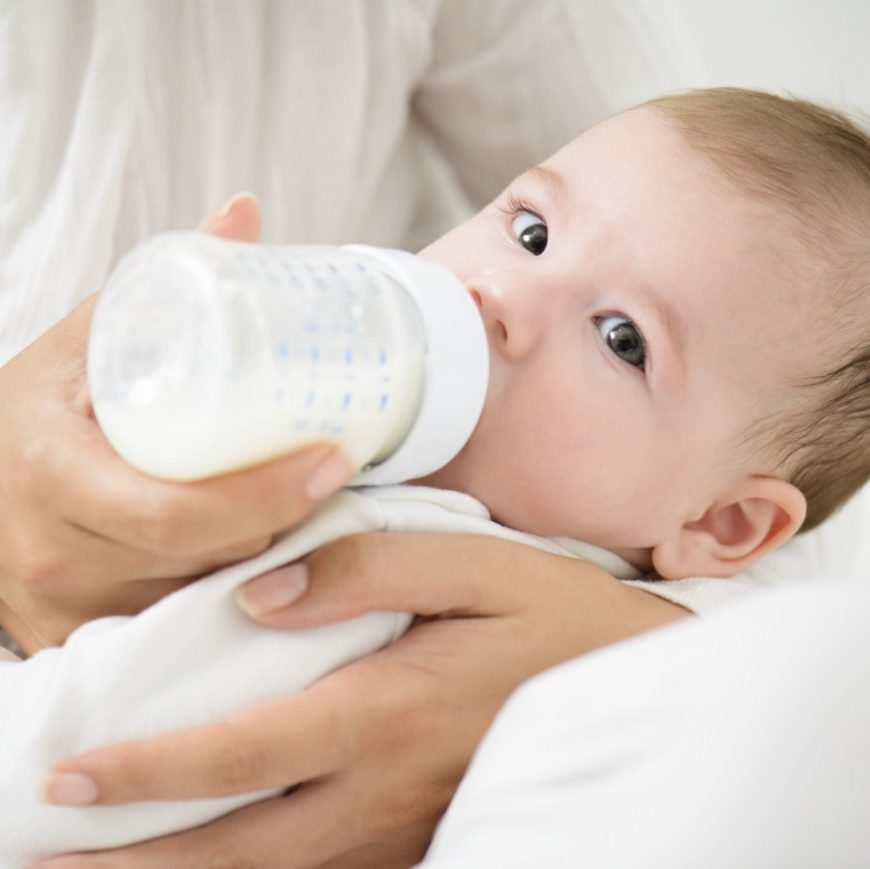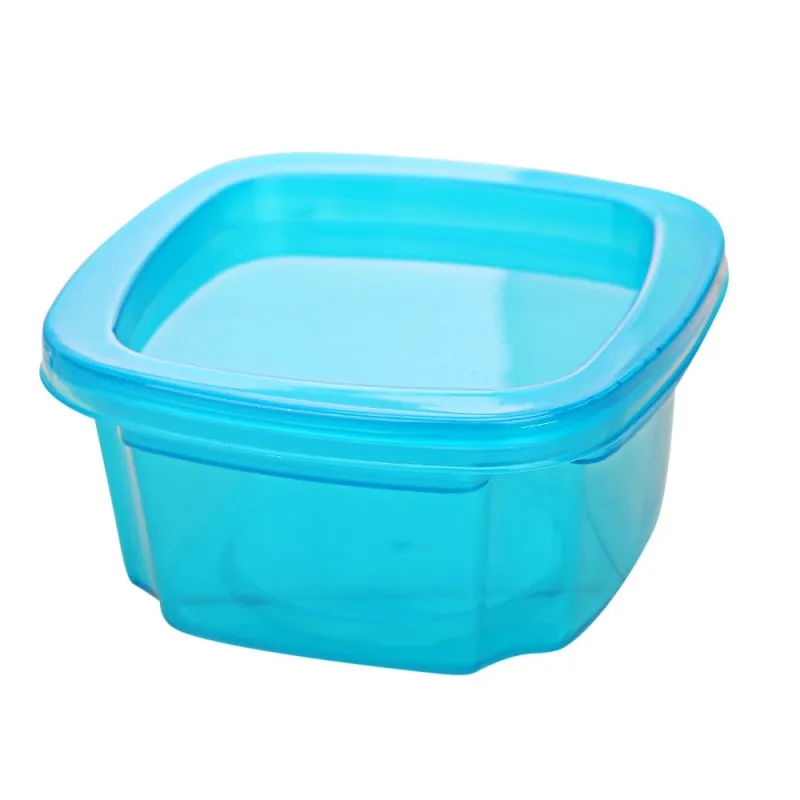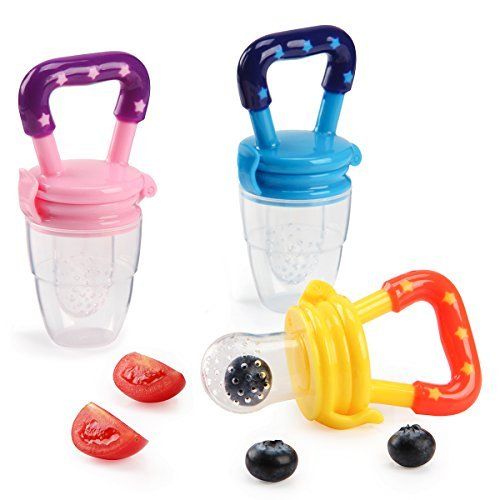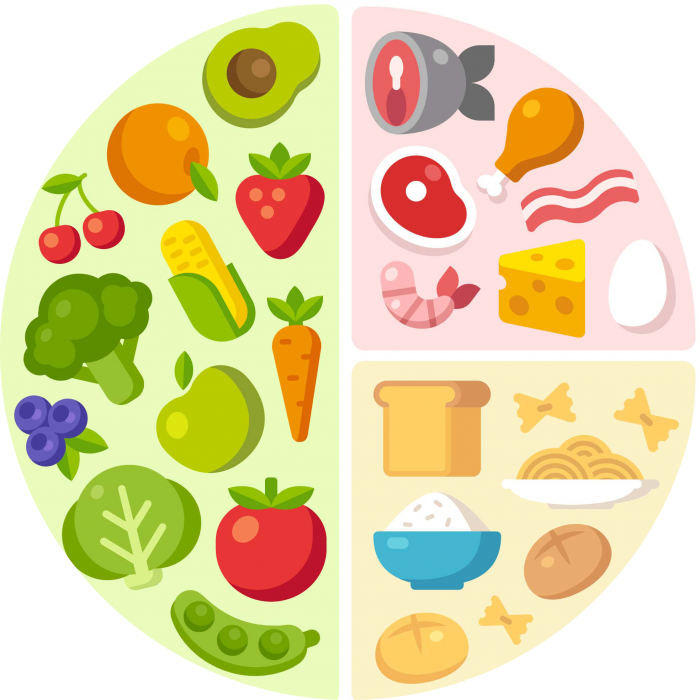Food baby ultrasound
Fussy eating starts in womb? 4D scans show fetuses 'smiling' after mother eats carrots, 'scowling' after kale!
It appears that expecting moms can change the mood of unborn infants by what they have for breakfast, lunch and dinner. Their food choices could influence the taste buds of children as they grow up, with implications for obesity, researchers say.
Scientists recorded the first direct evidence unborn infants react differently to various smells and tastes by looking at their facial expressions. An analysis of 4D ultrasound scans show how they responded after being exposed to flavors from foods eaten by 100 pregnant women.
“A number of studies have suggested babies can taste and smell in the womb, but they are based on post-birth outcomes while our study is the first to see these reactions prior to birth,” says lead author Beyza Ustun, a PhD student at Durham University, in a statement. “As a result, we think this repeated exposure to flavors before birth could help to establish food preferences post-birth, which could be important when thinking about messaging around healthy eating and the potential for avoiding ‘food-fussiness’ when weaning. It was really amazing to see unborn babies’ reaction to kale or carrot flavours during the scans and share those moments with their parents.”
The international team studied how the fetuses behaved just a short time after ingestion by the mothers. Those exposed to carrot or kale showed more “laughter-face” or “cry-face” responses, explains Ustun. The findings published in the journal Psychological Science sheds fresh light on the development of human taste and smell receptors. What pregnant women eat might also influence babies’ preferences after birth, and help establish an appetite for fruit and vegetables.
Humans experience flavor through a combination of taste and smell.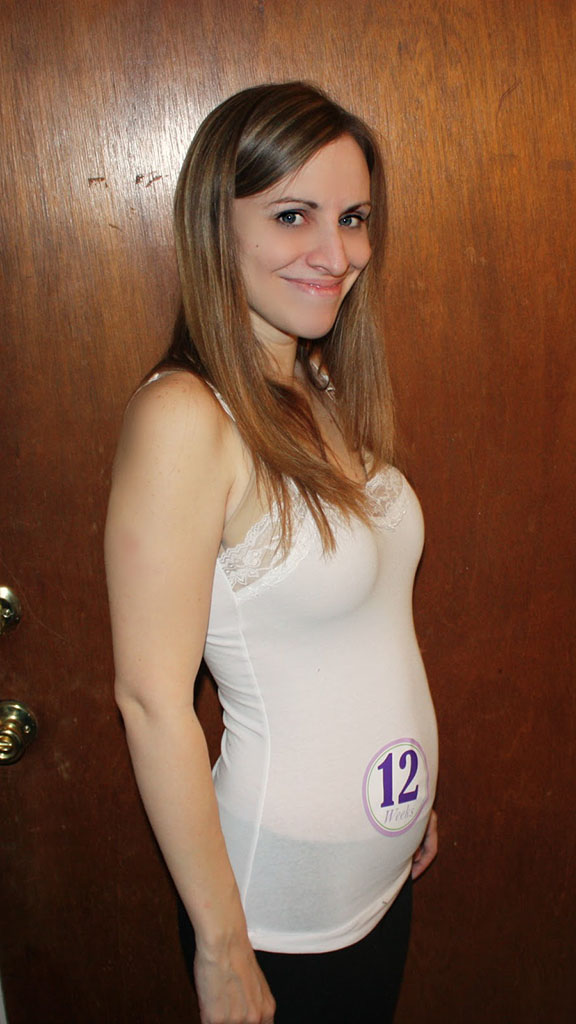 In fetuses, this may happen through inhaling and swallowing the amniotic fluid that surrounds a developing baby.
In fetuses, this may happen through inhaling and swallowing the amniotic fluid that surrounds a developing baby.
“Previous research conducted in my lab has suggested 4D ultrasound scans are a way of monitoring foetal reactions to understand how they respond to maternal health behaviours such as smoking, and their mental health including stress, depression and anxiety,” explains co-author Nadja Reissland, also from Durham. “This latest study could have important implications for understanding the earliest evidence for foetal abilities to sense and discriminate different flavours and smells from the foods ingested by their mothers.”
The mothers, aged 18 to 40, were scanned after 32 and 36 weeks of pregnancy. They were given a single capsule containing about 400mg of carrot or kale powder around 20 minutes before. It was all they consumed for at least an hour. The women also did not eat or drink anything else containing carrot or kale that day.
Facial reactions showed exposure to just a small amount of carrot or kale was enough to stimulate a reaction, compared with control fetuses not exposed to either.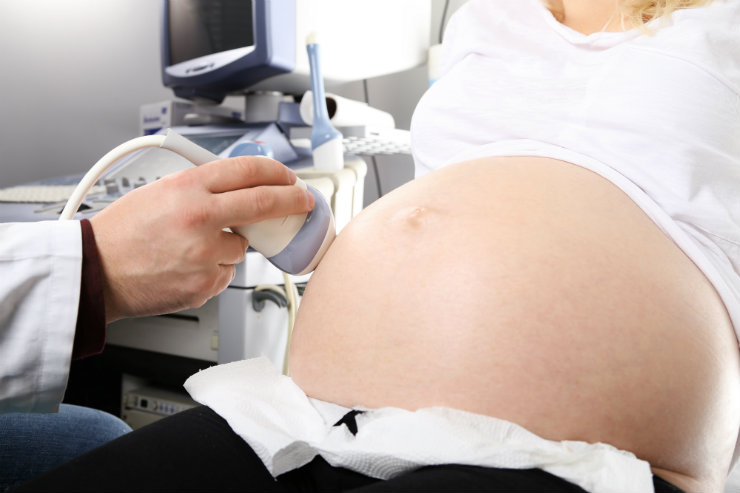
“Looking at foetuses’ facial reactions we can assume a range of chemical stimuli pass through maternal diet into the fetal environment,” notes co-author Benoist Schaal, of the University of Burgundy in France. “This could have important implications for our understanding of the development of our taste and smell receptors, and related perception and memory.”
The phenomenon might also help with information given to mothers about the importance of taste and healthy diets during pregnancy. The researchers have now begun a follow-up study with the same babies post-birth to see if the influence of flavours they experienced in the womb affects their acceptance of different foods.
“It could be argued repeated prenatal flavour exposures may lead to preferences for those flavours experienced postnatally,” adds co-author Jackie Blissett, of Aston University. “In other words, exposing the fetus to less ‘liked’ flavours, such as kale, might mean they get used to those flavors in the womb.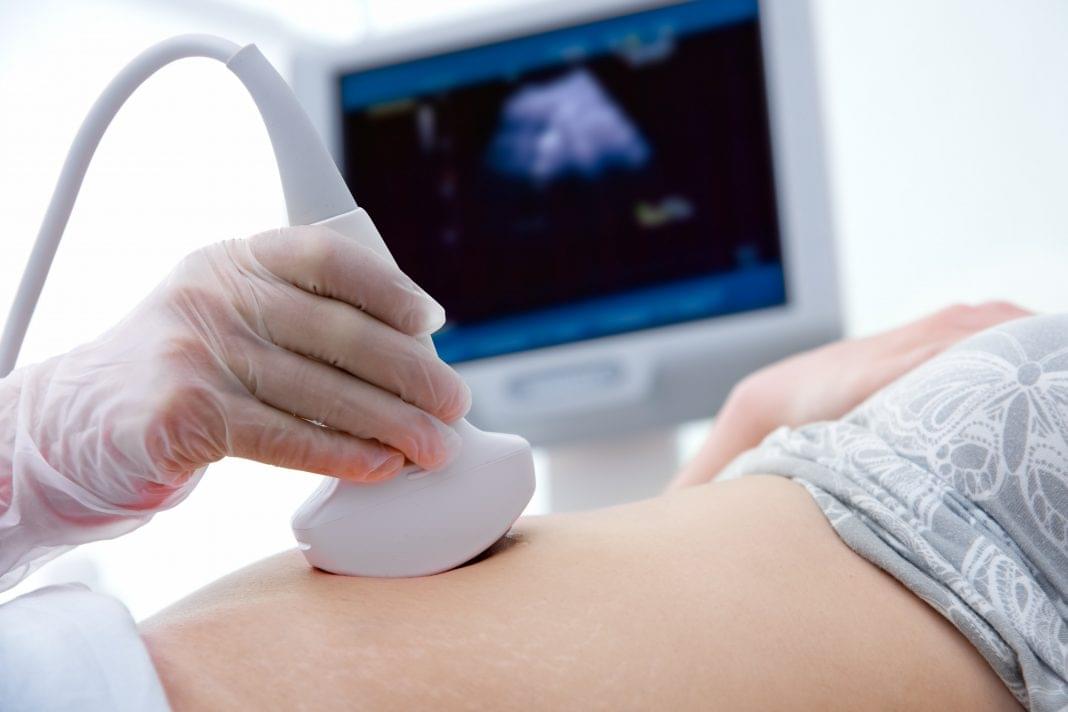 The next step is to examine whether foetuses show less ‘negative’ responses to these flavours over time, resulting in greater acceptance of those flavours when babies first taste them outside of the womb.”
The next step is to examine whether foetuses show less ‘negative’ responses to these flavours over time, resulting in greater acceptance of those flavours when babies first taste them outside of the womb.”
South West News Service writer Mark Waghorn contributed to this report.
Tags: babies, Carrots, diet, food, kale, pregnancy
What to Eat or Drink Before Scan?
The use of ultrasound in the setting of pregnancy is vast and has become the standard of care in the evaluation of pregnant women. Recent research by the National Library of Medicine states that 10.1% of ultrasound examinations are performed in the first trimester of pregnancy, 57.0% in the second trimester, and 32.9% in the third trimester.
If you have an ultrasound for the first time, you may wonder if you should eat before the procedure. Read on to find out what experts have to say.
What Are Ultrasounds and Why Do you Need One During Pregnancy?
Ultrasounds, also called sonograms, are a type of imaging that use high-frequency sound waves to create pictures of your baby in the womb. They’re safe for you and your baby and help your healthcare provider check your baby’s development and monitor your pregnancy.
They’re safe for you and your baby and help your healthcare provider check your baby’s development and monitor your pregnancy.
You might have one or more ultrasounds during your pregnancy. The first ultrasound is usually done around week 12, but you might have one earlier if you’re at high risk for certain complications. For example, fetal abnormalities like Down syndrome can be diagnosed with an ultrasound as early as week 11. You might also need an ultrasound later in your pregnancy if you develop certain complications, such as placenta previa or preeclampsia.
Can You Eat or Drink Before Your Ultrasound?
If you’re scheduled for an ultrasound, you may wonder if you can eat or drink before the abdominal ultrasound. The answer is generally yes, though there may be a few exceptions. For example, doctors might recommend that you not eat or drink before a transvaginal ultrasound, which is an ultrasound that’s conducted with a wand-like device inserted into the vagina.
Other medical reasons to avoid eating or drinking before a pregnancy ultrasound may include if you’re scheduled for a special ultrasound that uses contrast material or if you have diabetes.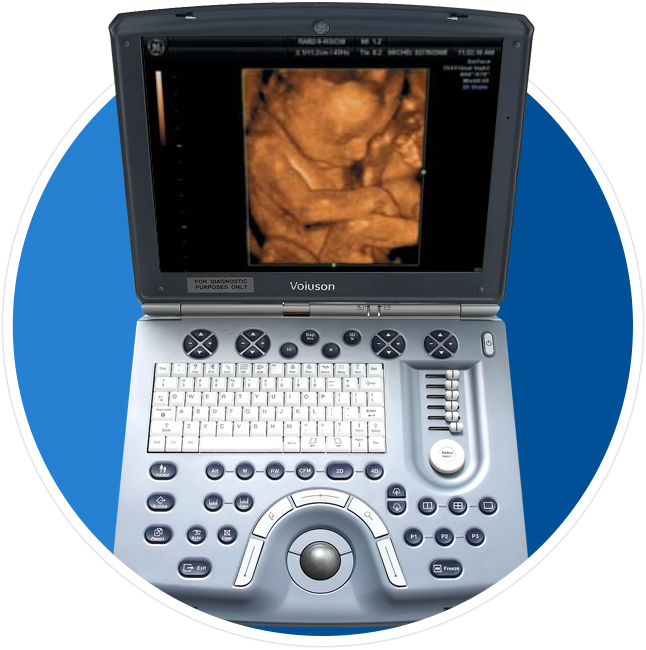 If you have more concerns about whether or not to eat or drink before your ultrasound, be sure to ask your doctor.
If you have more concerns about whether or not to eat or drink before your ultrasound, be sure to ask your doctor.
Drinking lots of water before your ultrasound is a good idea, though. That’s because a full bladder helps push the uterus up and out of the pelvis, making it easier to see on an ultrasound. You may drink 32 ounces (about one liter) of water about an hour before your appointment and then not go to the bathroom until after the test. Eating a light meal before your ultrasound is also acceptable.
Read this article on How Much Water Should I Drink Before an Ultrasound to get detailed information.
What Food Can I Eat Before an Ultrasound?
If you’re scheduled for a pregnancy scan, you may be wondering if there are any dietary restrictions you need to follow. After all, you want to ensure that everything goes smoothly and that your baby is healthy and happy.
Most doctors recommend a healthy and light meal before an ultrasound. It means avoiding anything that could cause indigestion or discomfort and anything high in fat or sugar.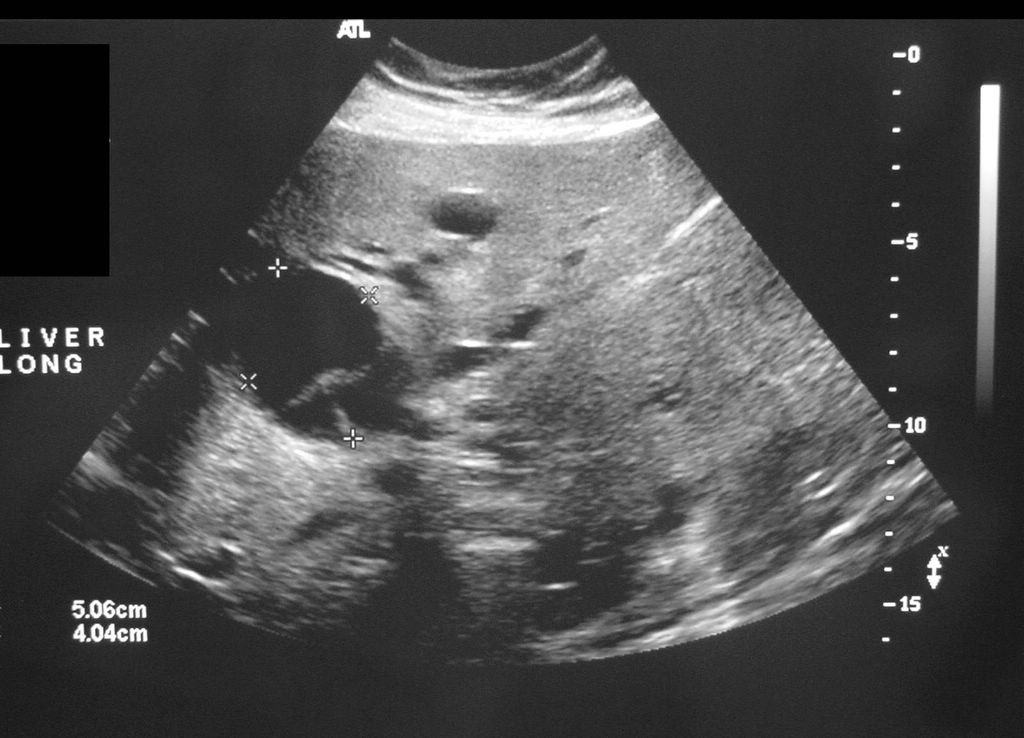 Instead, choose fruits and vegetables, lean protein, or whole-grain toast.
Instead, choose fruits and vegetables, lean protein, or whole-grain toast.
If you have questions about what to eat before ultrasound or any other prenatal care, call Baby Dimensions. We offer the best 3D ultrasound in Atlanta.
Rules for preparing a child for an ultrasound of the abdominal cavity, preparation for an ultrasound of a baby and children under one year old, norms and interpretation of ultrasound
Ultrasound (ultrasound examination) - medical examination of human organs, which is performed using a special sensor. This device emits high-frequency sound waves, which are then reflected from the examined tissues of the patient. The result of such a study is projected directly onto the doctor's monitor.
This is one of the most modern and painless types of examination. It is completely safe for patients of any age and gender, as well as for the fetus developing in the womb of a pregnant woman.
At the same time, this is one of the most accurate analyzes that allows you to examine the structure of internal organs, identify the presence of pathologies, diseases or neoplasms.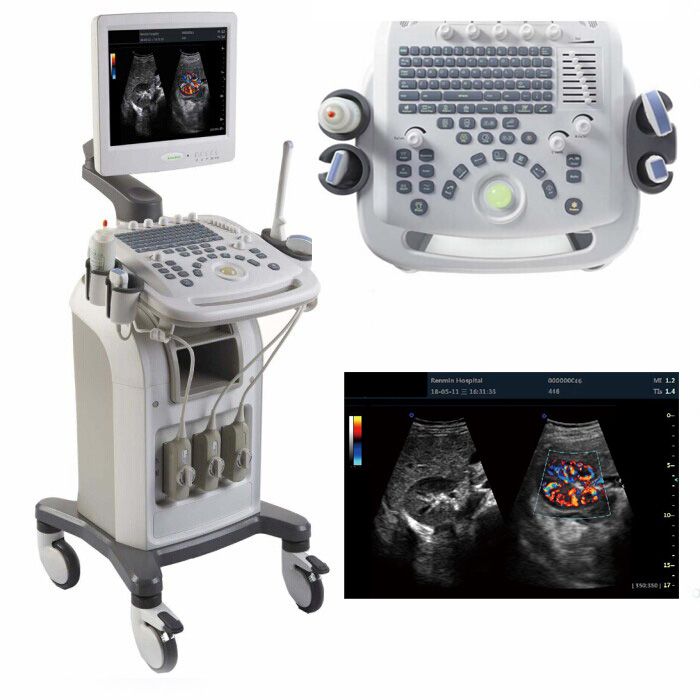
What diseases are detected during ultrasound in children?
Ultrasound examination of the abdominal cavity can be prescribed to a child both for preventive purposes (at the age of 1–1.5 months) and for the diagnosis of diseases or abnormalities.
It is necessary to undergo such an examination if the child:
- Developmental pathologies detected
- There are complaints of pain in the back, side or abdomen
- Yellowing of the whites of the eyes, skin
- Excessive gas, bloating present
- Pain of undetermined nature on palpation
- The child has a frequent violation of the stool
- Weight changes
- Problems associated with heaviness in the abdomen, nausea and bitterness in the mouth
Ultrasound can detect diseases such as:
- Reactive pancreatitis of the pancreas
- Internal bleeding
- Mononucleosis is a viral disease affecting the liver, spleen and other organs
- Blood diseases
- Cysts and other neoplasms
- Abscess of organs - an inflammatory process, which is accompanied by the accumulation of purulent masses
- Infestation
- Dropsy - characterized by accumulation of fluid in the organs
- Urolithiasis
- Pyelonephritis - inflammation concentrated in the kidneys
Ultrasound of the abdominal cavity of the baby: is preparation necessary?
For an abdominal ultrasound, children under 1 year of age require simple preparation.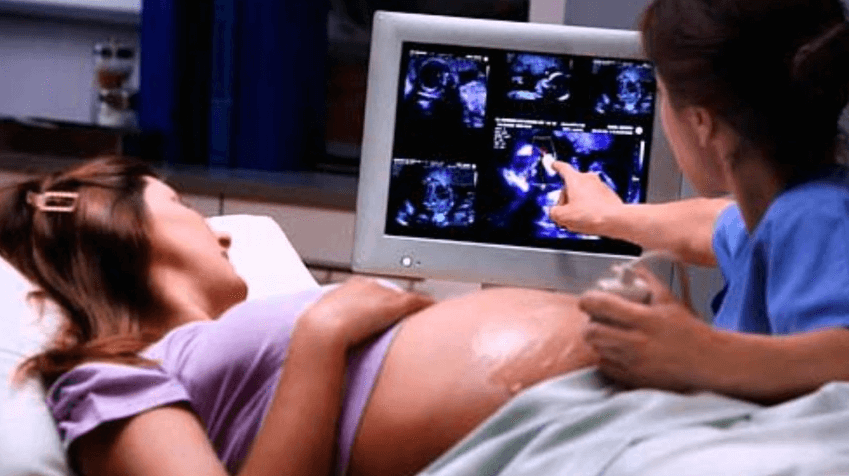 It consists in fasting some time before the procedure:
It consists in fasting some time before the procedure:
- For newborns, this period is three hours
- A breastfed baby also needs three hours
- Formula-fed baby needs 3.5 hours
It is best to bring such an infant for examination right before the next meal. The most convenient time for inspection in this case is the first half of the day.
Ultrasound of the abdominal cavity of a child from 1 year old: what preparation is needed?
Children between the ages of one and three are too young to tolerate hunger, thirst, or the urge to urinate. Therefore, there are simple rules for them:
- Diet
- The last feeding period should be 4-5 hours before the examination
- One hour before the start of the test, do not drink water (in extreme cases, the baby can be given very little liquid)
For an older child, preparation is more complicated. It includes:
- Light diet
- Bowel movement and regulation of digestion
- Fasting before the procedure for 6-8 hours
Two to three days before the examination, it is necessary to transfer the child to light food:
- Water porridge
- Steam lean fish and poultry
- One boiled egg per day
- Cheese
It is necessary to exclude such products as:
- Brown bread and other pastries
- Dairy products
- Vegetables
- Legumes
- Fatty meals
- Carbonated drinks
- Chewing gum and sweets
On the eve of the procedure, you can do an enema, as well as take drugs that regulate digestion if the child has stool disorders or increased flatulence.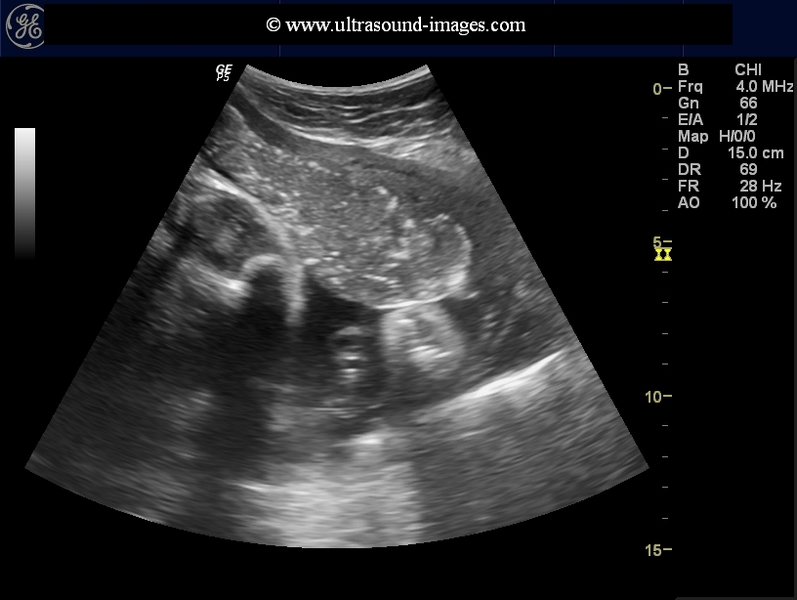
If the doctor has previously prescribed drugs to the child that must be taken with meals, then taking this medication should be postponed.
Contraindications
Ultrasound is safe for children of any age, so there are no contraindications to this procedure.
Difficulty in conducting the survey may arise due to the fact that the child will be in a non-standard situation for him. Therefore, before the analysis, you need to explain to the baby what and why the doctor will do.
Problems when using ultrasound can occur if the child has a damaged part of the skin on which the gel will be applied - there is a wound or painful skin rashes. Also, the procedure will be difficult if the baby is too painful to lie in the required position for analysis.
Norm and interpretation of abdominal ultrasound in children
If, before the ultrasound of the abdominal cavity, the preparation for the examination of the child was correct, then the examination will show a clear and contrasting image of the organs under study.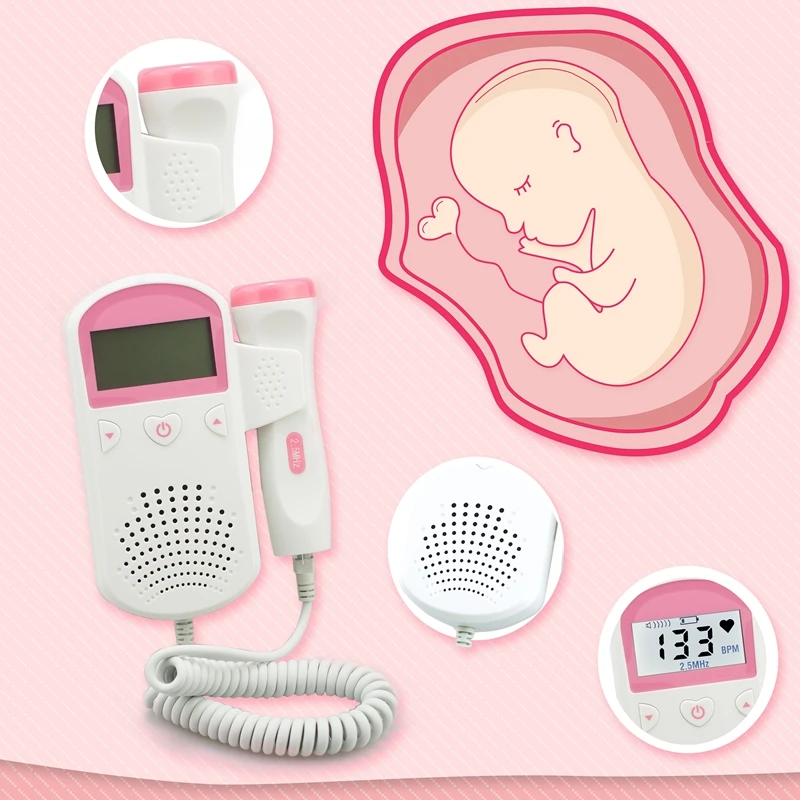
Normally, a child should not have cysts and other neoplasms, all organs should have a uniform structure and clear boundaries. For children of different ages, the correct sizes of organs differ.
According to the results of the study, the doctor evaluates:
- Pancreas - its size, shape and structure, as well as the condition of its ducts
- Kidneys - their homogeneity, the presence or absence of calculi (stones), wall thickness, overall dimensions
- Liver - its echogenicity, sizes of lobes
- Gallbladder - shape, correct development of the bile ducts, dimensions and wall thickness
- Spleen - its shape, tissue homogeneity and dimensions
In some cases, ultrasound can show the non-standard shape of one of the organs. But this is not always a pathology - this phenomenon may turn out to be an individual feature of the body that does not cause any harm.
Benefits of the procedure at MEDSI
- MEDSI uses state-of-the-art expert-class ultrasound equipment, which allows for the most accurate diagnosis
- All ultrasound machines are suitable for both adults and children
- Doctors-diagnosticians of high qualification categories will help with the preparation for the study, as well as provide a high-quality interpretation of the results and select an individual treatment in case of a disease
- If necessary, an emergency examination can be carried out
- Signing up for an ultrasound scan at MEDSI is easy - just call 8 (495) 7-800-500
Do not delay treatment, see a doctor now:
- Ultrasound
- Pediatric gastroenterologist appointment
Can I eat before an ultrasound?
People who have been scheduled for an ultrasound are wondering if they can eat before an abdominal ultrasound.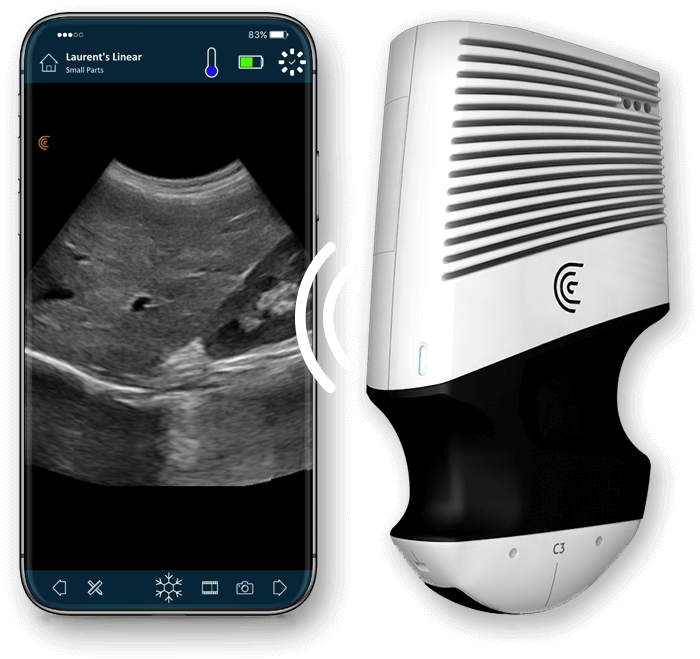 There is usually no need to diet before an ultrasound scan. An exception is the examination of the abdominal organs. Such diagnostics will provide maximum accuracy only with proper preparation. Otherwise, the result will be distorted by interference, which will lead to an incorrect diagnosis.
There is usually no need to diet before an ultrasound scan. An exception is the examination of the abdominal organs. Such diagnostics will provide maximum accuracy only with proper preparation. Otherwise, the result will be distorted by interference, which will lead to an incorrect diagnosis.
How to eat right?
Can I eat before the ultrasound? Ultrasound examination is carried out on an empty stomach. Therefore, you can not eat for 8-10 hours, and drink for 2-3 hours. For children, the duration of fasting is reduced. Babies are not allowed to eat for 3 hours, 1-3-year-old babies for 4 hours, and children aged 3-12 years - 6-8 hours. It is not recommended for children to drink water for an hour.
People with diagnosed diabetes should not fast for long periods of time. Therefore, before the session, they can drink tea and eat a piece of dried white bread. You need to eat little by little, but often (every 3-4 hours). You can't drink food. Drinking is allowed only 40 minutes after eating or an hour before it.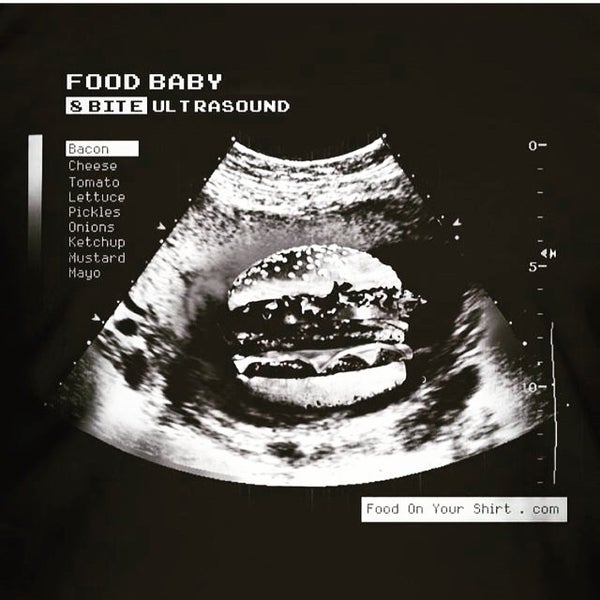 While eating, you can not rush and talk to prevent swallowing air.
While eating, you can not rush and talk to prevent swallowing air.
During the day, you should drink about one and a half liters of liquid: purified or mineral non-carbonated water, unsweetened weakly brewed tea, herbal teas, unsweetened compote, liquid jelly.
Dinner on the eve of the diagnosis should be light, meat and fish dishes should not be eaten. You can't eat breakfast on the day of the test. If the examination is scheduled for the afternoon, then a light breakfast is allowed, but enterosorbents must be taken a couple of hours before going to the clinic.
Prohibited and Allowed Foods
The diet before abdominal ultrasound is aimed at high-quality imaging, obtaining the most accurate results and preventing distortion. Therefore, within 3-4 days before the examination, special attention should be paid to nutrition. You need to eat foods that minimize irritation of the mucous membranes and gas formation, and prevent smooth muscle contraction.
Foods that increase gas formation should be excluded from the diet:
- black bread;
- rich pastries;
- fatty meat and fish;
- chocolates and sweets;
- vegetables and fruits;
- legumes;
- sausages;
- smoked products;
- fried foods;
- pickles and marinades;
- herbs and spices;
- mushrooms;
- dairy products;
- coffee and strong tea;
- juices;
- carbonated and alcoholic drinks.
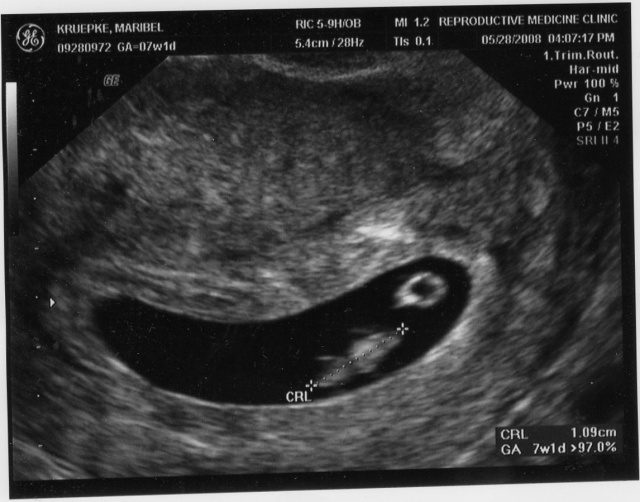
It is allowed to eat porridge from various cereals boiled in water, lean meat, low-fat fish, boiled eggs, hard cheese, white bread. Food should be steamed, boiled or baked.
Many people are used to drinking coffee in the morning. But before the diagnosis, you will have to refrain from this habit. The drink changes the functionality of internal organs, increases vascular tone, relaxes the muscles of the bile duct, and stimulates the activity of the gallbladder.
Tea can be drunk, but it must be unsweetened and not strong. It is recommended to give preference to green tea or a drink made from herbs. But on the day of the diagnosis, you can’t drink it, as it also contains caffeine.
In preparation for abdominal ultrasound, you can follow the following menu:
- Breakfast - one boiled egg, green tea.
- Lunch - a piece of low-fat hard cheese.
- Lunch - boiled or steamed dietary meat, compote.
- Snack - porridge.
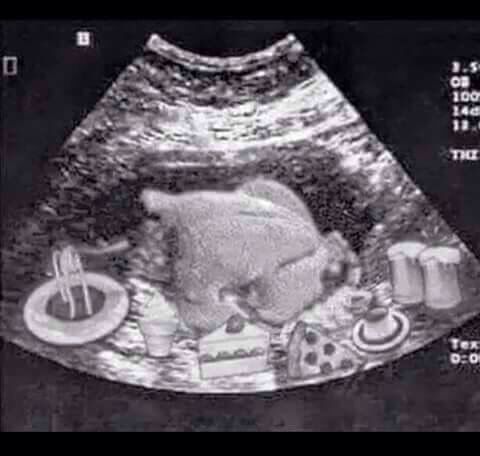
- Dinner - boiled or baked low-fat fish, still mineral water.
Compliance with a diet before diagnosis will not only ensure high accuracy of the result, but will also benefit the body - it will have a healing effect, allow you to lose a few kilograms, and reduce the load on internal organs.
What can distort the picture?
You need to know that various factors can distort the overall picture of the disease:
- excessive gas in the intestines;
- motor activity during examination;
- muscle spasms of internal organs;
- food debris in the gastrointestinal tract;
- thickened layer of adipose tissue in overweight people;
- residual contrast material after using other diagnostic methods.
Some important nuances
12 hours before the diagnosis, the intestines should be cleansed by making an enema — 1.5 liters of cool water are injected into the rectum using Esmarch's mug. An alternative to an enema can be microclysters or laxatives.
An alternative to an enema can be microclysters or laxatives.
If necessary, the doctor may prescribe medication to improve digestion and prevent flatulence. It is advisable to refuse other drugs, especially antispasmodics. If this cannot be done, then it is necessary to inform the doctor.
You must refrain from smoking for two hours before the diagnosis, as nicotine provokes spasms of the gallbladder and stomach. In addition, smoking promotes air absorption.
Refreshing lozenges and chewing gum should not be used before going to the clinic.
If a genitourinary examination is scheduled, one and a half hours before the procedure, you should drink a liter of gas-free water and do not urinate.
If the patient underwent colonoscopy, fibrogastroduodenoscopy, radiography with contrast, then an ultrasound examination can be done only after two days.
What to do after ultrasound
After the procedure, the diagnostician gives the patient a protocol that describes each organ and notes all the changes.